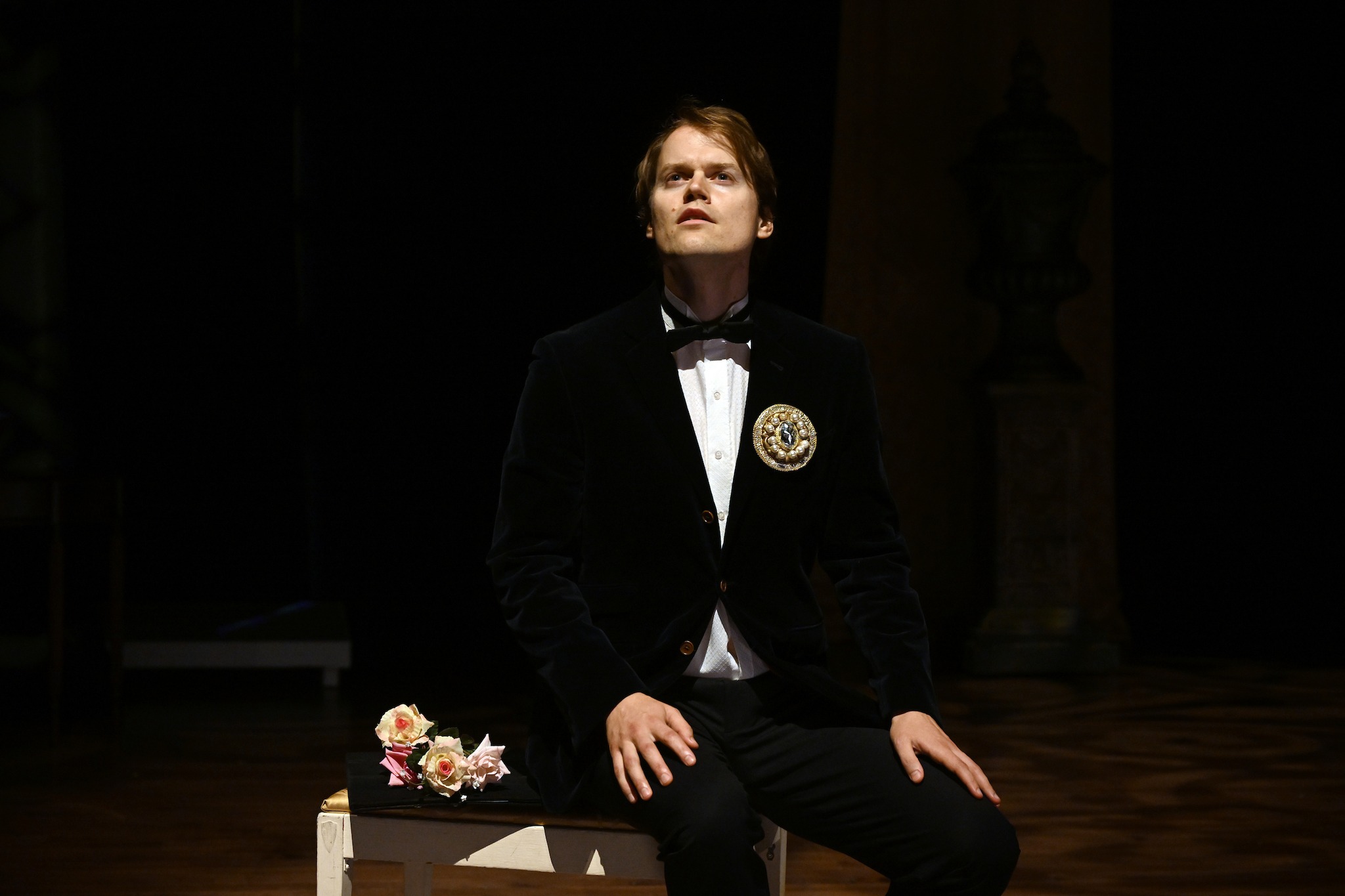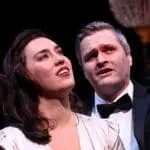On November 1st, Toronto Operetta Theatre (TOT) opened their 40th season with Sigmund Romberg’s The Student Prince. Throughout the years, TOT has delighted audiences with over 200 productions, securing its spot as Canada’s only fully professional operetta company. But the 40th anniversary wasn’t the only milestone being celebrated – Romberg’s The Student Prince made its debut 100 years ago in New York City. It became the longest running Broadway show of the 1920s, even surpassing Showboat’s total performances. Since its Broadway debut, The Student Prince became a silent movie and an MGM colour musical, has been recorded countless times, and has had two Broadway revivals. What explains its lasting popularity? The plot is nostalgic (with an unusually sad ending for operettas), the music is gorgeous, and the themes of youth, romance and collegiality are crowd pleasers. And who doesn’t like a good drinking song or two?
This was TOT’s third production of The Student Prince. With so much experience and such a great masterpiece to work with, what could possibly go wrong? Enter COVID stage right. During the weeks of practice, the production team was struck with the illness, with all cast members recuperating with one notable exception: Jacob Abrahamse, the prince himself, was not able to recover in time. I was sorely disappointed, since I am a big fan of Abrahamse, a gifted tenor who I had heard as an impressive Alfredo in BrottOpera’s 2023 La Traviata.
Where does one find a prince on such short notice? Enter Xavier Flory stage left. Flory started his singing career as a soprano soloist with the Vienna Boys Choir, with whom he sang over 200 times, including dozens of performances at the Wiener Staatsoper and as Gretel in Humperdinck’s Hänsel and Gretel across China and Germany. Along the way, he obtained a double PhD in political theory and sciences. He also happened to have been in a No Strings Theatre Production with Brooke Mitchell, who was playing Kathie in this production. Flory agreed to take on the role, despite not knowing the music or the dialogue. It is no wonder that Artistic Director Guillermo Silva-Marin announced before the performance that Flory was a “genius of the stage.”
With only five days to familiarize himself with the opera, Flory embraced the role of the lonely prince, and the production went off without any noticeable hitches. His rendition of the Prince’s Serenade was beautifully phrased with soaring top notes adding to the lushness of the melody, and his stature added to his princely presence onstage. But a prince is nothing without his court, and it was evident that a strong cast was at his beck and call.
![Katy (Brooke Mitchell) and the Prince (Xavier Flory)[53]](https://operacanada.ca/wp-content/smush-webp/2024/11/Katy-Brooke-Mitchell-and-the-Prince-Xavier-Flory53.jpg.webp)
Photo Credit: Gary Beechey
Brooke Mitchell and Xavier Flory as Kathie and Prince Karl at Toronto Operetta Theatre
Ryan Hofman was a well-acted and sympathetic Dr. Engel. His warm baritone voice contrasted beautifully with Flory’s bright tenor tones in “Golden Days,” and Hofman’s solo reprise of that piece was chilling. Sebastien Belcourt was in excellent voice and showed his acting versatility as both Prime Minister von Mark and Ruder the Innkeeper. The trio excerpts sung by Joseph Ernst (Lucas), Handaya Rusli (Von Asterberg) and Marcus Tranquilli (Count Hugo Detlef) were perfectly balanced and pure listening pleasure.
Brooke Mitchell had a sparkling high register and played Kathie with a joyful exuberance that immediately won listeners over. She was a triple threat, delighting audiences with her acting, singing and dancing. Her duet with Flory (“Deep in my Heart, Dear”) would bring even the hardest heart to tears. Kudos also to Minerva Lobato for her portrayal of the complex character of Princess Margaret. Her duet “Just We Two” with Luca McCauley, as Captain Tarnitz, was well balanced vocally and endearingly acted. Carrie Parks took snobbery to a whole new level with her hilarious Grand Duchess Anastasia, not to be outdone by Karen Bojti’s very funny portrayal of the disdainful Lutz. Bravi as well to Meghan Symon as Gretchen, Connor Glossop as Nicholas, and Taylor Gibbs as Hubert. The entire chorus sang and danced with gusto and made pieces like “Drink! Drink! Drink!” and “Gaudeamus Igitur” a feast for the eyes and ears.
Kate Carver skilfully conducted the wonderful ten-piece ensemble, breathing life into the ebb and flow of Romberg’s score. Silva-Marin’s direction was elegant, and scenes and props flowed seamlessly on the semi-circular thrust stage. The lighting design was simple and elegant, while the props were effective on the small stage. The male chorus members had vivid and historically unique costumes, but I would have liked to have seen more colour and variety in the very simple and sometimes unflattering female chorus costumes.
I walked away from this performance with the poignant feeling that I had been transported to a world that has disappeared, one where waltzes reigned supreme, love stories were innocent, and music was accessible and soaring. No wonder TOT has enchanted audiences for 40 years. I also realized I had just witnessed a real-life fairytale, where a handsome prince miraculously stepped in to save the day.
Opera Canada depends on the generous contributions of its supporters to bring readers outstanding, in-depth coverage of opera in Canada and beyond. Please consider subscribing or donating today.














